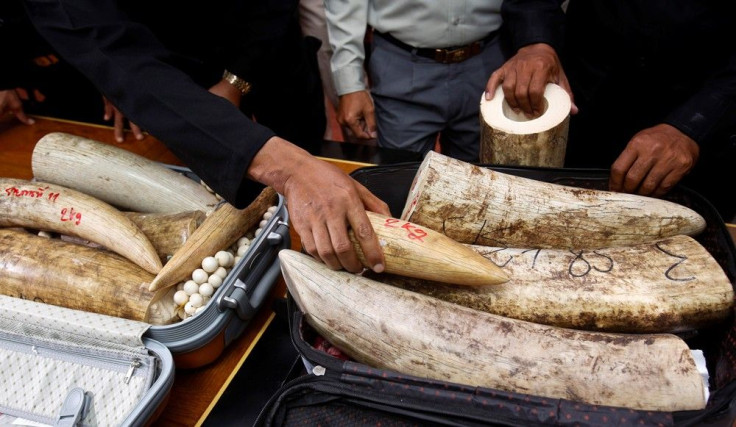China Joins Fight Against Poaching, Pledges To Phase Out Ivory Industry

Chinese government has announced on Friday that for the first time it will stop legalising domestic ivory trade, a move that supports anti-poaching. Many wildlife conservationists applauded the big announcement, but are still in need of the specifics on how the government would impose the ban, according to the Huffington Post.
“We will strictly control ivory processing and trade until the commercial processing and sale of ivory and its products are eventually halted,” said Zhao Shucong, the head of the country’s State Forestry Administration, in a report from the Guardian.
CEO of WWF China praised the government for the move to reduce the demand of trafficked ivory. According to him, the decision by the Chinese government will have a “profound impact” on the conservation of wild elephants and ivory trafficking.
Ginette Hemley, the senior vice president of Wildlife Conservation at WWF also said in the Huffington Post report that the destruction of ivory will send a message that crime should not be tolerated. She describes the move as “encouraging”, considering that China is the largest ivory consumer in the world and has stepped forward to support the move against poaching.
Interfering with the consumer demands of ivory in China is an important step in stopping the decline of Africa’s elephants due to poaching, though there’s progress it’s still considered slow, noted the Guardian. An international ivory trade ban was in place in 1989 and since then, it is estimated that the country has seized over 40 tonnes of ivory.
Sources say that phasing out China ivory industry was a part of the “10-point plan” Zhao announced. The plan included more stringent policies on illegal wildlife trade, on and offline. It also encompasses renewed efforts to curb ivory demands through public campaigns, as well as commitments to cooperate with international organisation.
To report problems or leave feedback on this article, email: wendylemeric@gmail.com.





















